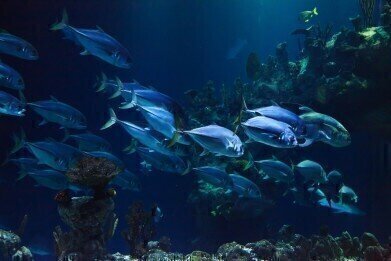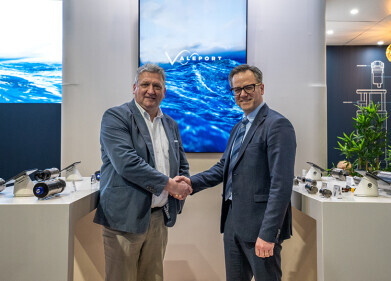Business News
14 Countries Pledge to End Overfishing
Jan 03 2021
14 countries across the globe have come together to pledge to incorporate sustainability and protection into future legislation regarding the preservation of the ocean. Together, the nations account for 40% of the world’s coastlines, meaning their cumulative impact could be significant in not only safeguarding the parts of the ocean close to them, but persuading others to follow suit, as well.
Among other initiatives, the countries have pledged to stop overfishing, take an analytical approach to marine fuel standards and bring an end to the flow of plastic pollution into our rivers, lakes and oceans. With the UN yet to introduce a comprehensive treaty on marine life encompassing all of its members, the pledge is being viewed as a ground-breaking move in protecting the planet’s waters.
An influential group
The 14 countries in question are Australia, Fiji and Palau from Oceania, Indonesia and Japan from Asia, Canada, Chile, Jamaica and Mexico from the Americas, Ghana, Kenya and Namibia from Africa and Norway and Portugal from Europe. All 14 are members of the High Level Panel for Sustainable Ocean Economy and cumulatively, while their coastlines comprise 40% of the global total.
Each nation has pledged to bring the waters under its own jurisdiction under sustainable management by 2025, which is equivalent to an area of the ocean approximately the same size as Africa. They have also agreed to do away with subsidies that encourage the practice of overfishing, as well as introduce stricter controls and harsher penalties in order to clamp down on those who break the law.
Ambitious aims
In total, the countries have laid out an impressive manifesto of their aims and ambitions and they are keen to encourage other nations around the world to sign up, too. Their objectives include:
- Publishing proposals to promote local sustainability by 2025
- Achieving protection for at least 30% of the world’s oceans by 2030
- Pressing ahead with plans to improve maritime air quality
- Monitoring fishing habits more effectively with the use of technology
- Stamping out the practice of discarding unwanted fishing gear at sea
- Preventing plastic pollution from reaching our waterways
- Investing in adequate sanitation and wastewater treatment facilities in developing countries
- Scaling up sustainable forms of fishing
- Investing in environmentally-friendly forms of power generation, such as offshore wind farms
Those promises reflect a large commitment to safeguarding the world’s seas and oceans in the coming years and it’s hoped that other countries will soon follow their example.
The global good
A recent report found that caring for the ocean produces substantial economic benefits, as well as the more obvious environmental ones. For starters, there are an estimated three billion people who depend upon the oceans for their sustenance, while it’s thought to contribute $1.5 trillion to the global economy. Indeed, each dollar invested in sustainability returns a $4 profit.
“Humanity’s wellbeing is deeply intertwined with the health of the ocean. It sustains us, stabilises the climate and leads to greater prosperity,” explained the Norwegian Prime Minister Erna Solberg. “For too long, we have perceived a false choice between ocean protection and production. No longer. We understand the opportunities of action and the risks of inaction, and we know the solutions. Building a sustainable ocean economy is one of the greatest opportunities of our time.”
Digital Edition
IET 34.2 March 2024
March 2024
Gas Detection - Biogas batch fermentation system for laboratory use with automatic gas analysis in real time Water/Wastewater - Upcycling sensors for sustainable nature management - Prist...
View all digital editions
Events
Apr 18 2024 Shanghai, China
Apr 22 2024 Hannover, Germany
Apr 22 2024 Marrakech, Morroco
Apr 23 2024 Kuala Lumpur, Malaysia
Apr 23 2024 Kintex, South Korea



















